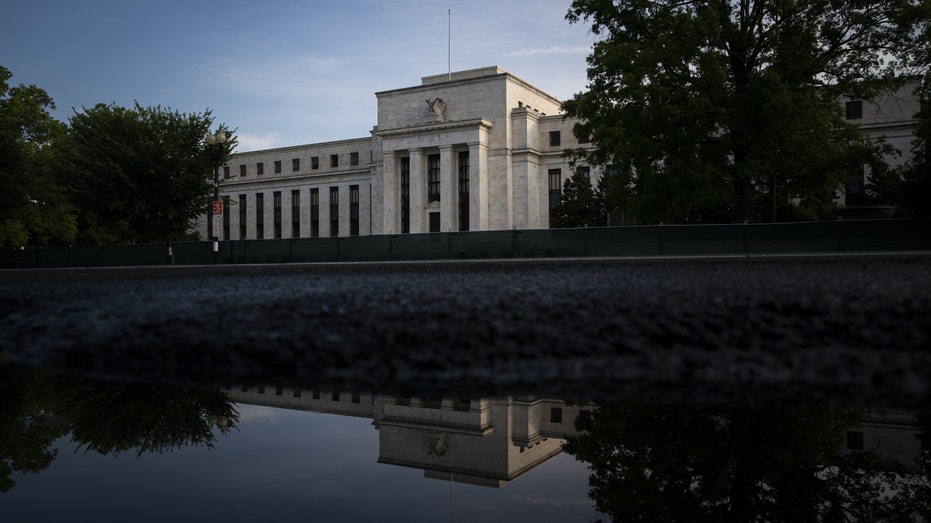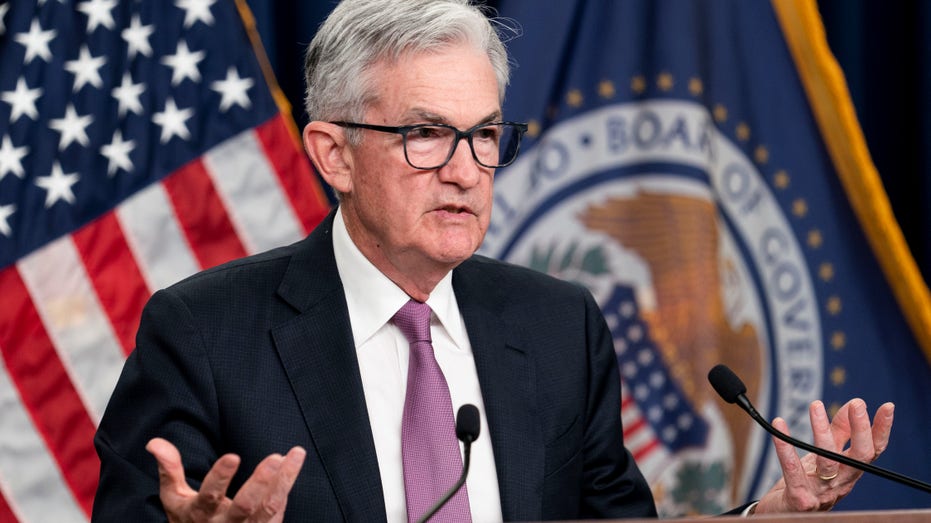Another jumbo Fed rate hike poised to add $2.1T to national debt, CRFB says
Fed expected to approve another 75-basis-point rate hike this week
'Buy now, pay later' debt a slippery slope for consumers: Retail expert
SW Retail Advisors founder Stacey Widlitz addresses rising credit debt as inflation persists on 'Cavuto: Coast to Coast.'
The Federal Reserve is expected to deliver a third consecutive super-sized interest rate increase this week, a move that will have serious consequences for the U.S. government and its finances.
The Committee for a Responsible Federal Budget, a nonprofit that advocates for federal deficit reduction, estimated that another 75-basis-point rate increase on Wednesday will add about $2.1 trillion to the national debt, which is already hovering near $31 trillion, over the next decade.
"While raising rates is needed to help fight inflation, each Fed rate hike means much higher interest payments on government debt," the CRFB said in a statement to FOX Business. "Policymakers can help the Fed by limiting the need for rate hikes with fiscal policy that pushes inflation in the right direction. That means not enacting legislation and executive orders like student loan forgiveness that have ballooned deficits and only made demand pressures worse."
That is because as interest rates rise, so too will the federal government's borrowing costs on its $30.89 trillion in debt.
BILLIONAIRE DAVID RUBENSTEIN WARNS INFLATION WILL BE 'DIFFICULT' FOR THE FED TO REDUCE

The Marriner S. Eccles Federal Reserve building in Washington, D.C., US, on Wednesday, July 6, 2022. (Photographer: Al Drago/Bloomberg via Getty Images / Getty Images)
Interest payments on the national debt are already projected to be the fastest-growing part of the federal budget in fiscal year 2022, according to the Congressional Budget Office. Payments are expected to triple from nearly $400 billion in fiscal year 2022 to a stunning $1.2 trillion in 2032 – a total of $8.1 trillion over the next decade.
As a share of the economy, total interest on the national debt will hit a record 3.3% of GDP, the broadest measure of goods and services produced in the country, by 2032, the CBO estimated.
In reality, the payments could be even steeper; current interest rates are already higher than those included in the CBO estimate from May, according to the CRFB.
For years, the U.S. has been able to borrow cheaply, as interest rates have remained historically low. However, as the federal funds rate increases, so will short-term rates on Treasury securities, making federal borrowing more expensive.
AMERICANS' INFLATION EXPECTATIONS DROPPED AGAIN IN AUGUST, NEW YORK FED SAY

U.S. Federal Reserve Chair Jerome Powell and members of the Federal Reserve will use this week's consumer and producer price indeces reports to weigh raising interest rates an additional 75 percentage points when the group meets on Sept. 21. (Photo by Liu Jie/Xinhua via Getty Images / Getty Images)
The current benchmark federal funds range of 2.25% to 2.50% is around the "neutral" level, meaning that it neither supports nor restricts economic activity. A three-quarter percentage point increase would put the range at 3.00% to 3.25%.
"The growth in interest costs presents a significant challenge in the long-term as well," the Peter Peterson Foundation said.
The CBO's projections show that interest payments could eventually total close to $66 trillion over the next 30 years, eventually taking up almost 40% of all federal revenue by 2052. Interest costs would also become the largest "program," over the next few decades, surpassing defense spending in 2029, Medicare in 2046 and Social Security in 2049.
"As interest rates rise and the nation’s debt grows, it will become even more expensive to borrow in the future. Congresses and presidents of both parties, over many years, have avoided making hard choices about our budget and failed to put it on a sustainable path. It is vital for lawmakers to take action on the growing debt to ensure a stable economic future," the Peter Peterson Foundation said.
The national debt is already set to hit $31 trillion as soon as this month amid a slew of new spending by President Biden and Democratic lawmakers. Biden signed into law a health care and climate change spending bill – dubbed the Inflation Reduction Act – in early August that would spend an estimated $739 billion over the next decade. Most of that revenue stems from new revenue generated by higher taxes; about half is slated to go toward paying down the debt.
CLICK HERE TO READ MORE ON FOX BUSINESS
However, that has been offset by Biden's decision last month to cancel $10,000 in student loan debt for millions of low-income Americans and $20,000 in debt for Pell Grant recipients. Estimates have suggested the policy could cost as much as $1 trillion.
FOX Business' Edward Lawrence contributed to this report





















